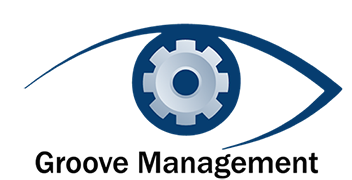THE TOUGHEST INTERVIEW QUESTION I EVER FACED AND WHAT I LEARNED FROM IT
Recently I published an article titled “The Best Leaders Ask Great Questions”. The premise of the article is that CEOs and senior leaders who apply a Socratic leadership approach tend to bring out the best in their people. While having the answers is ok, asking the right questions can be an extremely powerful leadership skill. Asking questions is the best way to quench ones thirst for knowledge. Learning occurs best when we actively listen and ask questions. This approach works at all levels of an organization and in settings from the board room to the shop floor.
Organizations that strive to build a learning organization develop a culture where asking questions is the norm. Ray Stata, the former CEO of Analog Devices once said,
“The rate at which organizations and individuals learn may well become the only sustainable competitive advantage. Products can be copied. Services can be copied. Even processes can be copied. Things like Six Sigma are available on the open market. But if you’re learning more rapidly than the competition, you can get ahead and stay ahead.”
This statement is more true today in our technology driven economy than it was back when Mr. Stata was running Analog Devices. The rate at which technology has disrupted industries and businesses continues to accelerate. The organizations that build learning agility into their plans are much more likely to succeed in today’s environment.
Building the right team is essential to achieving a learning culture. It is much more difficult to transform an organization into a learning organization by trying to change the behavior of the existing staff than it is to hire people who embody the learning philosophy. Hiring success boils down to assessing candidates on two dimensions:
Aptitude typically relates to the knowledge, skills and abilities (KSAs) required to perform the job. While KSAs are important, the ability to learn is probably the most critical skill that a candidate can possess.
I learned this lesson years ago when interviewing for a job. I was being considered for the Vice President of Human Resources for the Southeastern region of a publicly traded organization. After several rounds of interviews I was flown to Boston for the final interview with the CEO. I was told that the CEO wanted to meet finalists before the organization made hiring decisions at the VP level. I appreciated the approach and the fact that the CEO was so talent driven. The interview was a disaster and I remember it like it was yesterday although it occurred over fifteen years ago. After a few minutes of small talk the CEO asked me a question that completely threw me off and cost me the job. The question was “If we hire you, what do you want to learn at our company?” I was completely confused by the question. Naively, I tried to explain that the organization was hiring me for my Human Resources and organizational development knowledge and experience. That I could apply my skills to make the company better. He returned to the question telling me that he was not interested in what I could do, but interested in what I wanted to learn.
The interview was short and frustrating. It ended with me not getting the job. At the time I thought the CEO was a jerk and rationalized not getting the job by thinking that it was not a company I would want to work for anyway. It took me a few more years of experience and personal growth before I realized that the CEO’s question “What do you want to learn?” was actually an incredibly good interview question. He wanted to hire a Vice President of HR with a thirst for knowledge who understood the power of learning. I was too immature at the time to understand.
“What do you want to learn?”
Hiring individuals who possess a learning aptitude is not easy. While many organizations focus on resumes and previous work experience pertinent to the open role, learning organizations read resumes through a very different lens. A learning organization values diversity of experience because it is a sign of learning aptitude. A candidate who has done the same job for several years even in various organizations is far less attractive to a learning organization than a candidate who has held roles in several different disciplines or industries.
Attitude is just as important as aptitude when hiring the right employees. When it comes to a learning organization, the desire to learn is equally as important as the ability to learn. Finding candidates who possess the right combination of attitude and aptitude as it relates to learning can be a game changer for an organization. This shift requires that the recruiters and hiring managers look at candidates through a much different filter. The approach of forwardfilling job openings is rooted in this concept of looking for candidates who bring a different attitude and aptitude than the incumbent.
Building a learning organization requires commitment from the top. As I learned through my failed interview, an organization must be committed to the learning philosophy even if it means passing on qualified candidates. Today I would have approached answering the question “What do you want to learn?” much differently. I was not a fit for the organization at that point in my career, but I learned a valuable lesson from the experience. This proves that we often learn more from our mistakes than from our successes, especially if we take the time to reflect.

